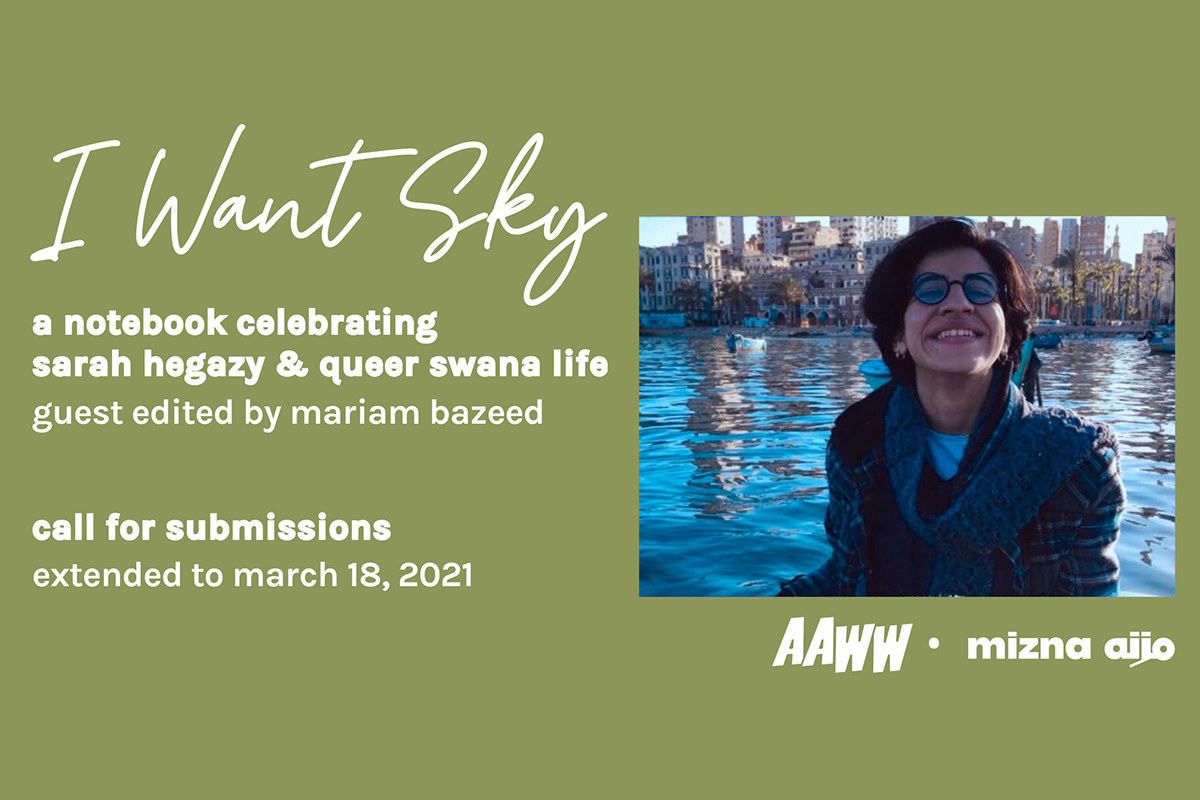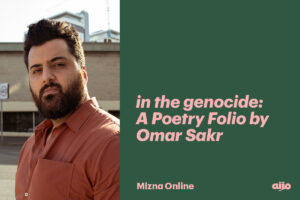
February 4, 2021
Call for Submissions: I Want Sky
This notebook is a special partnership between Mizna and Asian American Writers Workshop, guest-edited by Mariam Bazeed. Full submissions guidelines here.
Trigger warning: Suicide
In her suicide note, composed in the mute solidarity of the asylum of forced exile—and by a hand whose skin had yet to wrinkle—Sarah Hegazy apologizes.
On a simple, lined, spiral-bound notebook, with the faint red margin appearing on the left, not the right, inhospitable to her native tongue, she starts at the top, addressing her siblings, in blue-ballpoint Arabic:
“I tried to survive and failed, forgive me.”
On the next line she addresses her friends, asking absolution for being not strong enough.
On the next she addresses the world, forgiving it its manifest cruelty.
Her signature ends it, the very short letter. The whole thing doesn’t reach even half the page.
The last word in it is the Hegazy in her name. Written minutes or hours or days or weeks or months before Sarah died by suicide on June 14, 2020—none of us are ever going to know—Sarah pens the sickle of the ي, with a flourish.
This all happened because, on September 22, 2017, Sarah lifted a rainbow flag at a concert in Cairo, to signal to a country and a regime that wished so much for her not to exist, that she, Sarah Hegazy, was there, in an evening dedicated to music.
Sarah Hegazy ended her life in response to unimaginable cruelty, after being imprisoned and tortured by the Egyptian regime. Concurrent with her death was the novel coronavirus pandemic, in its sixth month of claiming lives and livelihoods and attention spans, a pandemic of constant uncertainty. Concurrent with that was the more familiar endemic of these United States: the routine killing, with utter impunity, of Black people, by a criminal state and its apparatus of enforcement. Concurrent with that was the rising horror of watching, at a time so steeped already in palpable despair, the United States’ necropolitic deadly crack down on protestors, for their insistence on hope and dignity and Black liberation.
In the midst of that, and the difficulty of in-person gathering, and a news cycle snowballing with terror, there were few avenues available to collectively mark and witness Sarah’s passing. For this special issue of The Margins, we invite submissions honoring Sarah Hegazy’s one irreplaceable life, and the lives of all LGBTQ+ Arabs and people of the SWANA region and its diaspora, and, too often, the risk inherent in their visibility.
We are looking for essays, poetry, short fiction, songs, comic strips, all forms of hybrid work, and submissions that queer any/all of these genres. We invite submissions that sing with joy on the page, or that rage, or that ask why, or that answer, or that name and mourn our losses, or that deny the past its salience, or that imagine a better tomorrow, or that do all or none of these things.
We will publish accepted submissions anonymously for those who wish to do so.












